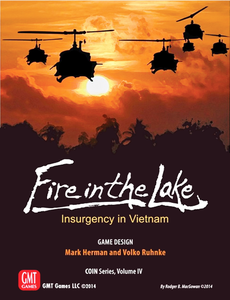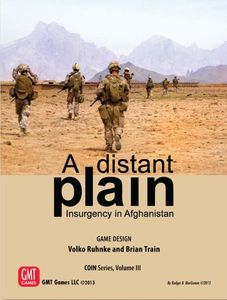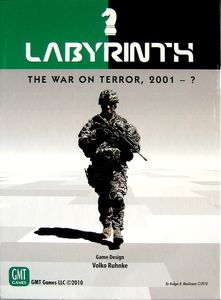Dude! Take Your Turn!
A Gaming Life
Should We Be Playing at War?
For my 100th post here on Dude, Take Your Turn, I wanted to do something a little different than what I’ve done previously. Tackle a bigger subject.
As I was thinking about what that might be, a couple of things happened.
First, as some of you may know, I’m a member (and now Patreon Supporter!) of the Stately Play web site, one of the best online communities and news sites for mobile and computer games (especially board game adaptations).

In one of the forums discussing the release of Afghanistan ’11 (a “sequel” of sorts to Vietnam ’65 by Slitherine), a member said the following:
“I can’t begin to imagine why someone would release a game like this. 1400 civilians were killed in the year that this game starts.
The airstrikes they talk about in the game trailer often hit civilian targets and 2011 also sees an increase in the use of suicide bombers and IEDs.
Its an absolute tragedy of a conflict and someone at Slitherine thought it would make a “fun” game? WTF is the matter with them?”
Then, I read a review from The Player’s Aid of a game called Colonial Twilight: The French-Algerian War, 1954-62 published by GMT Games.

This is a game about the war for Algerian independence from France and the insurgency that arose during the war. Terrorism is a legitimate tactic in the game.
In the review, Grant says the following:
“I love the use of Terror when playing as the FLN as it truly is the only real tool that you have to affect the Government and ultimately win the war. I say that I love using the Terror Ops but I really cringe each time I have to use them as it feels wrong, both morally and ethically, but this is one of the great design elements of the game. Making you think before you act. A lot of times in regular hex and counter wargames, I usually don’t think anything about bombing civilian centers or cities, as there really is no negative effects upon the psyche for doing so. But in Colonial Twilight, the game is so visceral and emotionally evocative, that I actually feel that I have to tread lightly when I am bombing cities as I think about the consequences of my actions through collateral damage.”
Both of these came in quick succession for me, and it made me realize that it would make a great topic for a 100th post.
Should we be playing at war?
(I’m not saying Grant’s statement is against playing at war, as obviously that would be misconstruing it since he is a wargamer. It just made the topic come to my mind)
Any of you who have read my “How I Became a Gamer” post know that I started out as a wargamer. I loved World War II simulations, and I still occasionally long to play a good wargame.
So I’m definitely on the “yes” side of this argument.
Grant makes a good point in that review, that a good game can immerse you in the subject and really make you think about it.
It can make you realize just why some questionable tactics are actually used, and it can make you really think through the implications of your actions. Not just in the game and how it will affect your winning, but also in the grander view of life.
Is that enough, though?
Do the people who feel that we shouldn’t be playing these games have a point?
I know some people who will never play a historical military conflict game because of what it represents. It represents men (and women too) killing and dying for their country or for a cause, the violence that is inherent to human nature.
That’s certainly a valid opinion and nobody should ever be forced, or coerced, or convinced to play a game that they’re not comfortable with. I would never play a war game with somebody who I knew was uncomfortable with it, even if they offered, because I know and understand how they feel.
Others are fully comfortable with playing these games.
Is there a period of time when a conflict is too fresh to play?
Given the Afghanistan game mentioned above, is it just too soon? The Vietnam game also by Slitherine didn’t cause this kind of indignation, but in that one you are also fighting an insurgent war. I’m sure there are similarities to the Afghanistan game.

Is Vietnam far enough in the past that it’s not an issue? We still have friends and family members who fought in that war.
Even World War II has that, though obviously not nearly as many.
What is the statute of limitations on wargaming, if it is a matter of “too soon?”
World War II games (and military conflicts prior to that, like Napoleonic War games) do have that buffer of history, where you can say that you’re not really playing at war. You are learning and playing history. It’s not as immediate.
But what about modern warfare?
GMT Games has published multiple games about modern conflicts in addition to historical ones.
The two noteworthy ones for me are Labyrinth: the War on Terror (a card-driven game that uses some mechanisms from Twilight Struggle and is about, you guessed it, fighting the War on Terror) and a game in their COIN (Counter Insurgency) series called A Distant Plain: Insurgency in Afghanistan.


These games are about wars that are going on right at this moment. We have friends and family dying over there; the wars are still controversial, at least to some extent. The Geo-political situation is still pretty chaotic.
I, for one, have no problem with these games. In fact, I’d love to play them and try them out.
But I can understand those people who do.
Sometimes, things just hit too close to home.
Would I feel differently if I had a brother who had died in Afghanistan? Or in a terrorist attack? Would I be able to play the Jihadi side in Labyrinth if that were the case?
I honestly don’t know. That’s a hypothetical that I don’t think one can know unless it actually happens (in which case it wouldn’t be a hypothetical anymore).
What about general antipathy to war games because of what they are actually simulating?
Unfortunately, there is really no way around that. You either feel that way or you don’t. If you do feel that way, then no amount of rationalizing is going to change that opinion.
Because wargames are simulations of human beings killing other human beings.
Sure, it’s abstract. But that’s what it represents.
In strategic war games, one counter can represent thousands of men. When that counter is eliminated, that means that the unit cohesion is gone. It’s ceased to exist as an organized and effective military force.
It doesn’t mean that every man in that unit is dead.
But a lot of them are. That’s why they’re not cohesive anymore.
Which brings to mind one more question, when you’re talking about what a “unit” represents in a game.
How abstract does a game have to get before it’s “ok” for those who don’t like wargames?

When you think about it, Chess is a wargame. You have kings and queens, bishops and knights, and pawns, going out on the board and eliminating the pieces from the other side.
But it’s so abstract that any “war” theme is completely gone.
Where’s the balance? At what point is a game too much of a wargame for comfort?
This post has been pretty philosophical without a lot of answers. Just raising questions.
(My college Philosophy professors would be proud)
I know my personal answers. I love wargames and I really would like to play the GMT games mentioned above.
But that’s me.
What about you?
What are your thoughts on wargaming, and whether we should be “playing at war?”
I’d love to know. Leave me a comment and tell me!
And here’s to 100 more posts coming up on the blog.
Thanks for linking our review. I often struggle with certain elements of wargaming and feel that your questions, as well as points made, are very important for us to think about. I play wargames not for the glory of war or to simulate killing but to better understand what it is about the historical conflict that made it happen the way it did. I love to play games where I get a chance to in effect change that history.
But I play wargames with a sense of great respect for those that fought and died in those conflicts. The act of playing the wargame, is in many ways in my mind, my attempt at honoring them. Great article and thanks for writing it.
LikeLiked by 1 person
Thank you, Grant! And thanks for your always-thoughtful reviews.
Since I don’t get a chance to play wargames, reading about them through reviews such as yours and Katie’s and others lets me keep a finger on the wargaming world.
I appreciate you stopping by.
LikeLiked by 1 person
Congrats on 100 posts!
It’s an interesting topic. I tend to be largely turned off by modern military themed games (both video and board) as it does feel a bit too real to me.
LikeLiked by 1 person
Thank you! And yes, I can understand that feeling.
LikeLike
Pingback: 5 on Friday: 03/11/17 – No Rerolls
I draw comparisons to films- should we be watching films about modern conflict?
Attitude is important- I don’t want to play someone who only plays Waffen SS, for example.
LikeLiked by 1 person
Good comparison.
And I agree about attitude too. Sometimes you just have to back away slowly if you happen upon somebody like that.
Thanks for the comment!
LikeLike
Dave, I wrote a reply to this but WordPress won’t let me post it for some reason.
Brian Train (co-designer of A Distant Plain, designer of Colonial Twilight and many other modern insurgency games)
LikeLike
Oh yeah, sure, it posts THIS reply…. B~(
LikeLike
LOL isn’t that the way it always works?
I’d really love to hear what you had to say, but understand if you don’t want to do it all again.
LikeLike
I don’t know what went wrong.
Am I not allowed to put links in comments or something?
Because I did have one or two, to send you to a chapter Volko Ruhnke and I co-wrote for the anthology “Zones of Control”, called “Chess, Go and Vietnam: Gaming Modern Insurgency”, containing most of my thoughts on this topic (and Volko is much on the same wavelength). Most of it is on Google Books, page 513.
Grant spoke about the emotional connection he made with the subject matter of the game; about the same time as he posted on his blog, two other reviews appeared online saying much the same thing.
(Here I would put a link to my WordPress blog, with links to the reviews.)
I view these games as a form of interactive, participatory learning about history, and my aim in designing them is to create that emotional connection or desire-to-learn with the material, without being hectoring or sanctimonious.
And when I achieve it, which apparently I do sometimes with some people, it’s like a writer making a connection through their novel, an actor through their performance, a painter through their… painting.
The recency of the material I take as my topic makes it less palatable to some, but to me it is just as much part of history as the Diet of Worms (the conference, not the casserole).
Learning more about the world around us, by any means available, is crucial to functioning within it… and I hope that people who are revolted at the thought of playing a game on Afghanistan will be at least motivated to pick up a book on it instead.
But that doesn’t always happen either, just as there are people who look on these games as nothing more than collections of interesting mechanics to facilitate small-group interaction, or worse, as elaborate puzzles to be broken.
They’re missing the point.
Anyway, let’s see if this posts,
Brian Train
LikeLike
Yeah, maybe it is the links. I’ve never tried posting links in a comment before. Maybe it’s my settings. I’ll check those.
But thank you for doing it again. Very interesting stuff! I do look at it, even the modern day games, as examining it like history, much the same as you.
I do think that reading about something is different (and probably more palatable) than actually playing it, because in a game you are actually deciding to do (whatever bad thing it is) rather than just reading about it second-hand. But I do share your wish that if somebody doesn’t want to play it, they should hopefully read about it instead.
I do appreciate the thoughtful comment, and the thoughtful games! One day, I hope to play some (knowing that some, if not all, COIN games can be played 4-player, I may be able to actually get some to the table).
LikeLike
Very thoughtful article! I agree with the consensus here that playing wargames is an educational experience akin to watching a movie or reading a book on the subject – if done right. However, if a game gives me the opportunity to not only watch somebody I abhor, but actively play their role, I want the game to make me understand how this role is peculiar and what it stands for.
Egregious examples of sweeping these crucial differences under the rug can be found in many strategic-level WWII games that treat all nations as basically the same – the Allies want to conquer Berlin, the Axis Moscow or London, but except for that, there is no difference. So those are games that, in my opinion, waste the potential to teach and help understand by being immersed, and I would not feel comfortable playing them, especially not on the Axis side.
And, as you so importantly stated: Everybody should make sure that their gaming partner(s) are comfortable with the game that is about to unfold. Everybody has different ideas what’s okay in a game.
Lastly: Congratulations to 100 posts!
LikeLiked by 1 person
Thank you! And thanks for the thoughtful comment as well.
You saw me on Twitter, so you know one reason why I always played the Germans. 🙂
LikeLike
Though I started out in the early 60’s with wargames (Avalon Hill mostly), people I game with these days are not interested in such games. When I play them, I do so solitaire.
What about games, not really classified as “wargames,” which touch on subjects that may bother other people?
LikeLiked by 1 person
That is always an interesting question as well. I have a friend who doesn’t play games, but if she did, she definitely wouldn’t be playing any zombie games. Not because she thinks they are stale or anything, but because they actually scare her.
Thanks for stopping by and commenting, Scott. I truly appreciate it!
LikeLiked by 1 person
Pingback: Boardgame Geek Top 300 – Play or Played – #300-291 – Dude! Take Your Turn!
Pingback: Review – Storm Above the Reich – Dude! Take Your Turn!